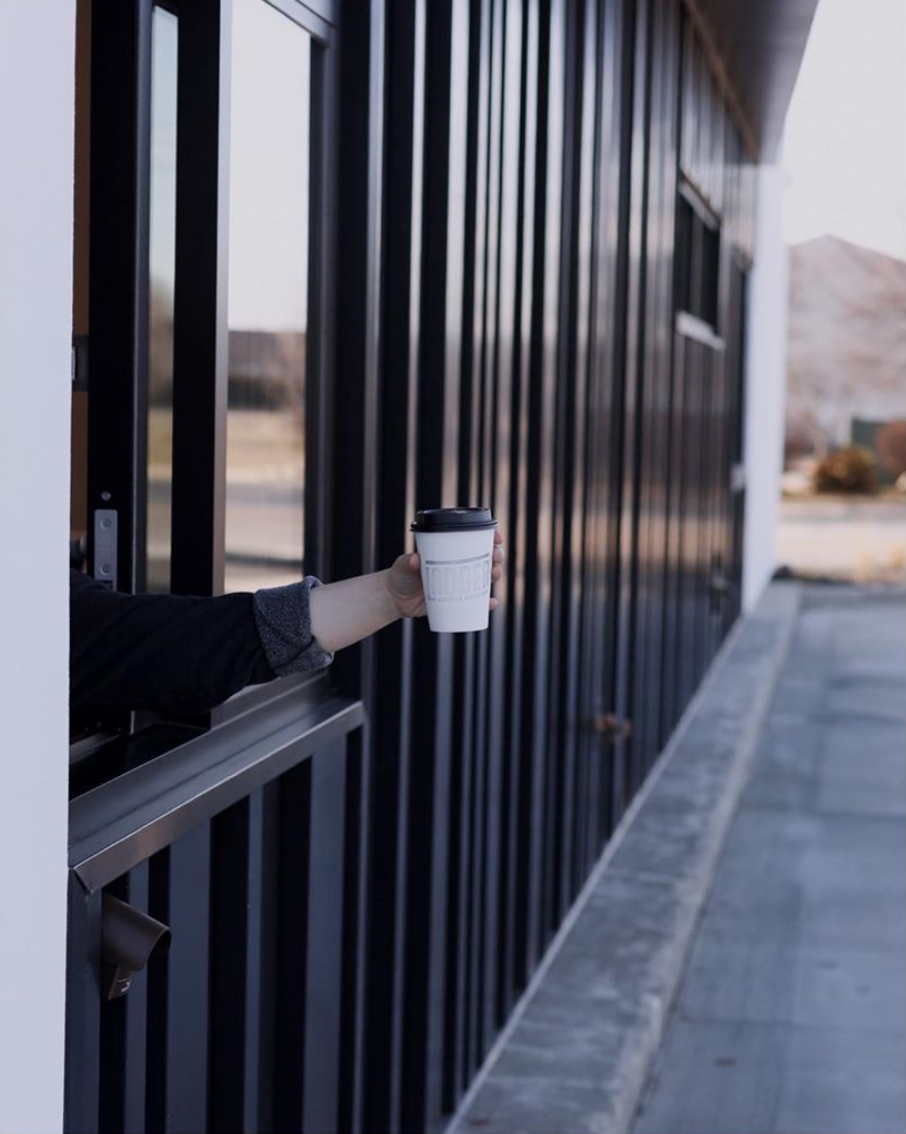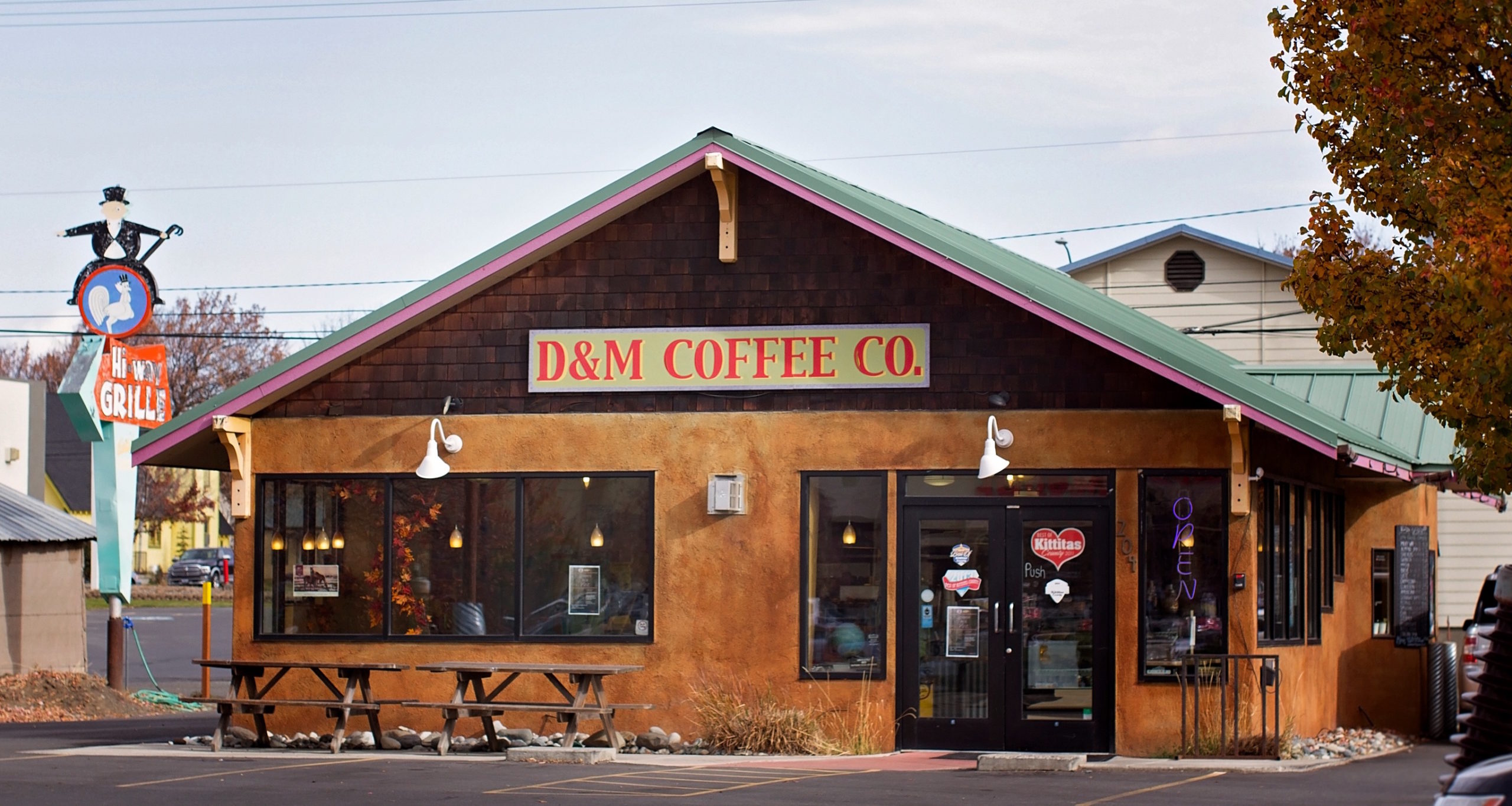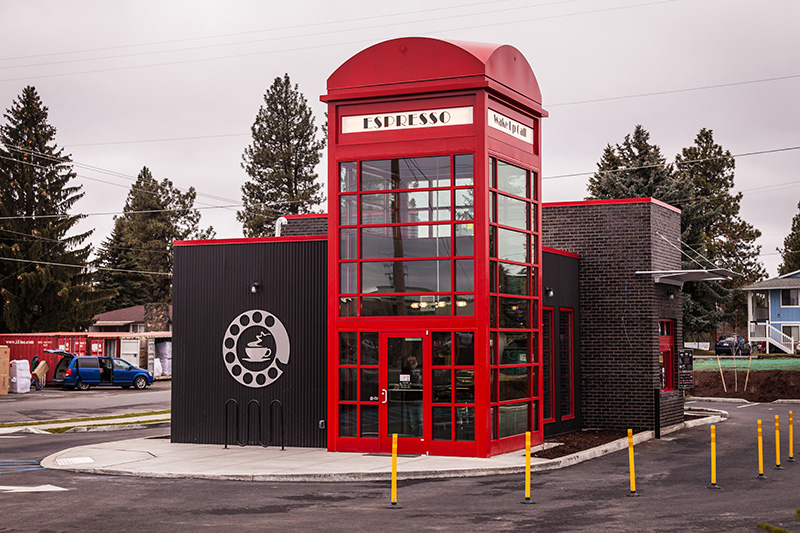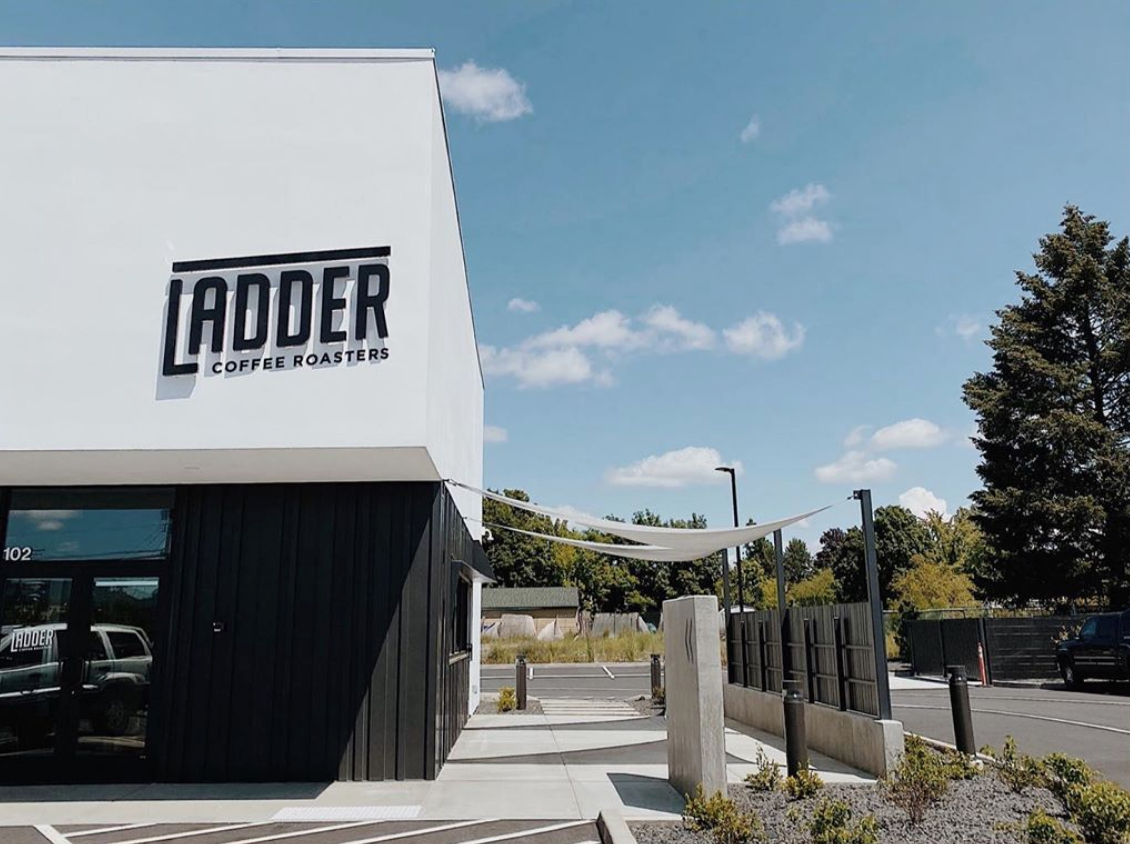
The Ladder Coffee Roasters drive-through window at its brick-and-mortar location in Spokane Valley, Washington. Photo by @annacopleyphotography
In specialty coffee, there is often a stigma surrounding coffee drive-throughs, possibly for their fast-food approach, the reliance on single-use packaging or for their arrant defiance of specialty coffee’s “community space” narrative.
Yet if ever there was a coffee retail model built for the pandemic era, it’s the drive-through coffee shop.
In Washington State, a mecca of drive-through coffee in the Unites States, some coffee businesses more in the “specialty coffee” realm have leaned on their drive-through locations to stay afloat during this difficult time, while others have thrived altogether, despite facing some strange new operational challenges due to COVID-19 prevention.
In the central Washington city of Ellensburg, D&M Coffee owns and operates five cafes, and offers full-service coffee at its sister company, Cornerstone Pie.
“We’ve reduced operations to just two cafes right now,” said co-owner Mark Holloway, who with his wife Donna Malek launched D&M in 1990 with a converted trailer.
Through 30 years of careful expansion, D&M now has two locations that are strictly drive-through, with a third location that offers drive-through and inside seating, while the other two cafes are inside only. Despite temporarily closing three of the locations, and a dramatic but hopefully temporary reduction in staff, Holloway said coffee orders have increased at D&M’s drive-throughs since the COVID-19 shutdowns began.
“We’ve had to add shifts to keep up with demand and to make sure the staff is socially distancing,” said Holloway, noting that staff have been provided with face masks and touchless transactions have been implemented.
“One new thing we’re seeing is people walking up to the drive-through,” said Holloway, who was originally trained by Diedrich founder Steve Diedrich and remains loyal to the Diedrich roaster brand as D&M continues to push out coffee. “Before COVID that never really happened. Now we have a lot of our regular customers from our downtown shop coming to our drive-through locations, walking through the drive-through, and enjoying their coffee down by the river or in the park.”
Across the state in Spokane the shop chain Wake Up Call — known for giant replicas of red UK telephone booths — operates nine locations around the city, and one in Coeur d’Alene, Idaho. Each location offers drive-through, with most also housing some indoor seating.
Before the pandemic, Wake Up Call had indoor seating available at nine of its locations but has since temporarily closed its lobbies to the public. Currently, only the drive-throughs remain open, providing much healthier returns than what many shops with no drive-throughs are reporting.
“The hardest thing for us was figuring out what we needed to do safety-wise in order to stay open,” Christopher Arkoosh, who started Wake Up Call in 2004, told DCN. “We’ve experienced about 20-25% drop in sales, but I think that’s due to our reduced hours and closed lobbies.”
Despite relying so heavily on drive-through revenue, Arkoosh also noted some inherent social difficulties in the model, particularly in an era where faces and voices are often obscured by protective masks.
“One challenge has been not being able to see or hear our customers talking to us,” he said. “Working in customer service, you’re able to interpret a lot of subtleties like smiling and facial expressions, but that’s no longer a thing since everyone is wearing a mask.”
At the time of this interview, Wake Up Call had implemented a $2-per-hour raise for all staff members, according to Arkoosh.
Also in Spokane is Ladder Coffee, which operates two cafes, one of which has a single drive-through in the Spokane Valley just east of Spokane. Founded by Aaron Rivkin in 2017 and focused squarely on the higher-end specialty coffee market, Ladder began roasting its own coffees in 2018 before also opening its first brick-and-mortar cafe.
Last December, Ladder opened a its second cafe, in a Spokane Valley building shared with Canopy Credit Union, offering a drive-through.
“Unfortunately the pandemic hit right in the middle of the grand opening of the new location,” said Rivkin, “but we turned our focus on our online sales and the drive-through.”
In addition to promoting those channels, the business also responded with new products tailored to consumer trends in the COVID-19 era, including a cold brew concentrate for online sales that’s brewed in an Alto cold brew system using a 1:1 ratio, according to Rivkin.
“The community has been rallying around us out here, along with the other specialty food businesses,” said Rivkin. “We’ve been noticing with new customers that people who drink craft beer realize they can get a great-tasting cup of coffee, too, even from a drive-through. People are going from getting their quick caffeine fix at the drive-through to actually enjoying a cup of coffee.”
Craig Batory
Craig Batory is a writer, marketer and coffee professional working and
living in Detroit.









Comment